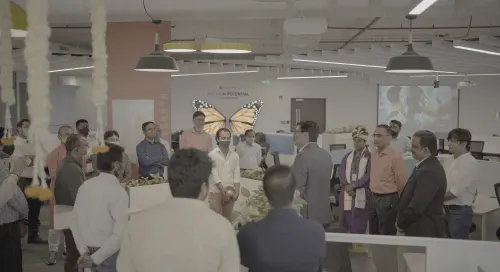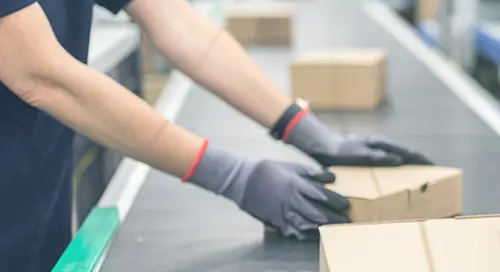Building a Workplace Culture That People Won’t Want To Leave

Organisations changed how they functioned overnight. With the pandemic, they not only had to keep their people safe, but also strive hard to devise methods to keep their business afloat. The positive outcome, for both companies and employees, was that they discovered that they could function effectively in new ways remotely. Employees received the satisfaction of flexibility and a sense of autonomy. That's why recruitment companies in India like us believe that remote working is very much here to stay. Remote working has also led to a "Hybrid" trend at the workplace (a combination of working from the office and home). This presents a new challenge for organisations. Especially when it comes to building an interconnected culture that attracts and retains the best employees. Here are some valuable tips on how organisations can surf through these new challenges to build a workplace culture that people just won't want to leave.
Rethink your definition of culture
For us at ManpowerGroup, culture is simply “how we do things around here.” It’s the total of default behaviors, values, preferences, and decisions that make each company a unique habitat, regardless of whether people visit the office or not. The pandemic has made us realise that we must and can build the culture from living rooms of our homes and not just by physically going to the offices. Some leaders have the conventional outlook of coming to the office. The notion that you can advance your company culture outside the office can be difficult to grasp. But to make the cultural shift of a hybrid workforce, it is important for leaders to start thinking differently. Leaders can focus on building culture anywhere by adapting a flexible approach and measuring the output produced by each employee and their contribution to the organisation with as much objectivity and data as possible. Above all, by cultivating trust with employees, leaders can elevate the company’s culture in the online world.
Prioritize productivity over presentism
More focus should be on the results produced rather than the hours spent in the workplace. Organisation needs to prioritise results over people being present. For jobs that must be in-person, it’s important for the organisation to keep few pointers in mind • Flex the hours to minimize the commute • Flex the shift to allow parents to be part-time teachers and • Flex the days to enable the workforce to work in a way that meshes with life. Organizations should empower employees to plan their day so that parents, for instance, will no longer feel disadvantaged by having to make the choice between attending online school with their toddlers or having to show up for conference call.
Give people autonomy to own their jobs
Our research suggests that the second concern, after health, for all workers is maintaining flexibility. Our data tells us that what matters most to workers is autonomy. They need to choose when and how they complete their work. With a rise in remote learning and growing demands on families, offering this flexibility has grown increasingly important. Take active steps to challenge any entrenched assumptions about the gender-normative roles of mothers and fathers. These norms should not drive the way managers and colleagues perceive remote working and what they expect of them. Learn to evaluate output and reward people for what they actually contribute.
Building a hard-to-leave culture
If we’ve learned anything from 2020 and 2021, it’s that company culture is not contained in an office. Rather, culture is fostered within people. As many of us return to offices, we must not forget that a company’s culture is all about the people, and not about where they work. The office should become a place to celebrate culture, not create it. To create a dynamic workplace, it’s important to think about how people work and their individual needs. People work in different ways, and certain physical features of the workplace can affect that. When you create a workplace that’s conducive to different kinds of work, you’re creating a workplace that’s dynamic and can grow with your company.


















